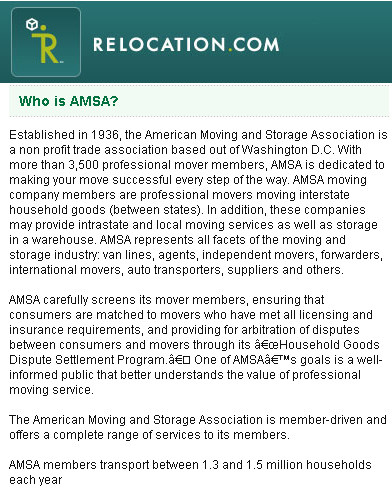By Relocation.com Staff
Items You Cannot or Should Not Put Into Storage. Storage companies need to protect themselves and the items being stored in their facility. Due to this, nearly all storage companies have restrictions on what items are permitted in their storage units. However, if you have a specific item that one storage company refuses, you should inquire about other facilities. The restrictions one company holds may differ from another's. When you are visiting your preferred storage company, ask them what items they do not allow on the property. Most likely, they will be able to offer you a booklet or pamphlet listing their current restrictions.
Browse through our guide before preparing your items for moving or storage so that you do not arrive at your warehouse with the wrong items. It is important that you recognize what items are not permissible to store such as valuables, flammables, perishables or stolen items. In addition, there are probably fragile items you should have packed for you by moving professionals. Contact your storage facility directly with any specific questions you may have. Refer to this list as a guide to know what items you may not place into your storage unit.
Flammable Items. It makes perfect sense that storage companies do not want items in their storage facility that can potentially burst or explode and cause damage to the warehouse. Flammable, corrosive or explosive items that are not permitted include:
- Hazardous Materials / Combustible Materials / Aerosols
- Acid / Gasoline Poisons / Charcoal / Lighter Fluid
- Fertilizer / Paints / Car Batteries / Matches
- Nail Polish & Remover / Ammunition / Liquid Bleach / Stern
- Aerosols / Kerosene / Pool Chemicals / Chemistry Sets
- Fireworks / Pesticides / Motor Oil / Paint Thinner
- Batteries / Loaded Weapons / Weed Killer / Ammonia
- Lamp Oil / Propane Tanks / Cleaning Fluid
Perishables. Perishables include food items. If you are looking to store perishable foods, you should locate a storage company that specializes in storing these items. Their facilities will be air conditioned with temperature control to ensure your goods do not go bad. Regular storage facilities will not allow food into their units for the obvious reason that it attracts pests and rodents. Infestations can case a great deal of damage to goods as well as the facility. Most insurance companies will refuse to insure items that are stored with perishable food products.
Plants. It is difficult to move or transport plants as they are sensitive to temperature changes. In addition, plants attract insects which most storage warehouses try to avoid. Contact the Department of Agriculture for information regarding moving your plants across state lines.
Other items not to store. You should inquire about items you wish to store that you are unsure of. In addition, when it comes time to locating a moving company you may have a hard time finding one who will agree to move similar items refused by a storage facility. Your mover will not be liable for unapproved items that come into his or her possession without his or her knowledge. Whether or not these items create a physical threat to the mover or storage facility, they may place other items at a greater risk for damage. There are many specialized facilities available to assist you with storing commonly restricted goods.
Necessary items. The following are examples of necessary or time sensitive items you may want to avoid placing in storage:
- Address Books / Files / Personal Video Tape
- Air Line Tickets / Financial Statements / Photos and Albums
- Car Keys /Furs /Research Projects
- Bond /Deeds/Tax Records / School Records
- Check Books / Jewelry / Sterling Silver
- Coins / Letters / Stocks / Stamp Collection
- Computer Software/Disks / Medicine
High value items. It is not recommended to store valuable or precious items in your storage unit unless the facility specializes in storing high value goods. An example of specialized storage would include a temperature controlled facility for storing items such as furs or wines. Items which exceed $100 per pound per article are generally thought of as extraordinary or high value items. Your preferred storage company may define high value items differently, so inquire about this beforehand. Examples of high value items include:
- Antiques / Crystal / Precious Stones or Gems
- Art Collections / Currency / Silver and Silverware
- Cameras / Figurines / Video Cameras
- Computer Software / Furs
- Coin Collection / Oriental Rugs
Firearms. The majority of storage companies will not permit you to store guns or ammunition in their storage facility. If a facility does permit this, you will be required to adhere to strict security guidelines.
Stolen goods. As you may have assumed, no facility will accept illegal or stolen goods. If stolen goods are placed in a company's warehouse without their knowledge, they are not liable in the event that this information is revealed.

